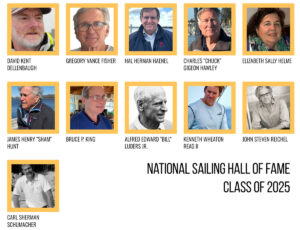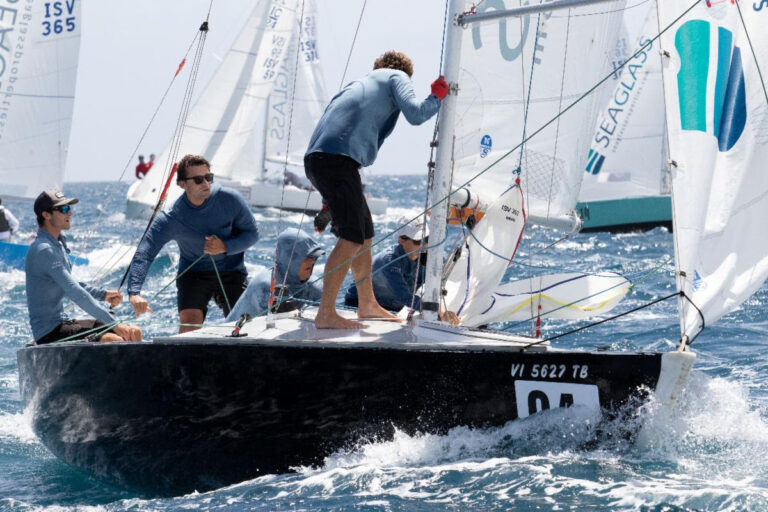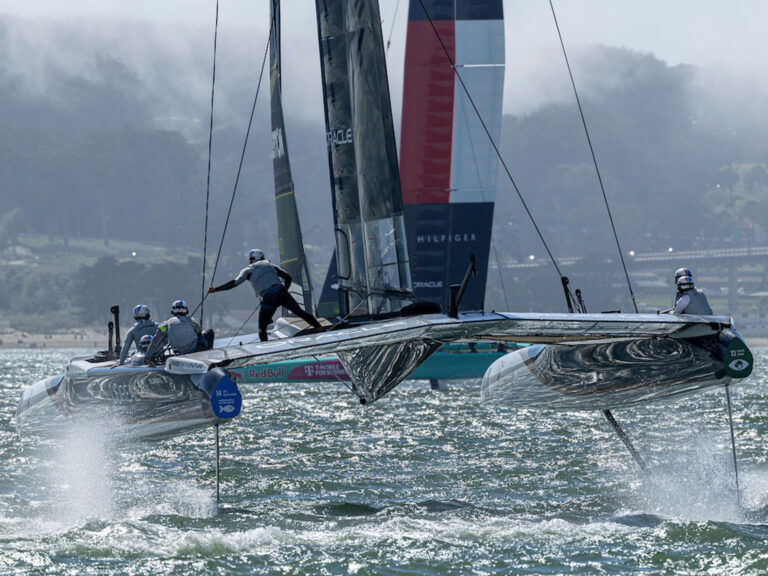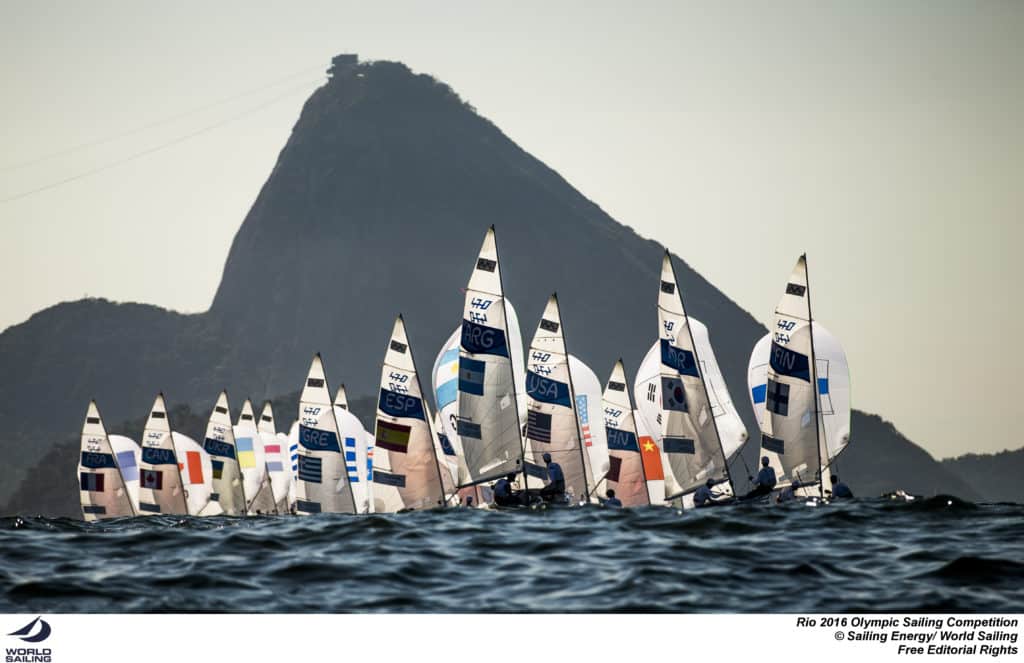
The Rio 2016 Olympic Sailing Competition
In preliminary events leading up to the 2008 Beijing Games, the Olympic sailing format changed to include medal races in the fleet racing format, introducing a final, double-points race to determine the final standings for each fleet. This introduction created a need for a new kind of strategy, different from fleet racing to accomodate the higher stakes.
US Sailing High Team’s Performance Director Charlie McKee never sailed in an Olympic medal race himself (he won bronze in Seoul in 1988 and bronze in Sydney in 2000), but he now assists the American coaching staff in a number of ways, including strategizing approaches for medal race competition.
The first part of medal race tactics to understand is that the medal race is a culmination of the weeks’ sailing, not a clean slate, so sailors can go into the medal race with no mathematical possibility to medal. They can also go in with a guaranteed podium place or a guaranteed medal, based on point differentials between them at the people above or below. For example, Great Britain’s Giles Scott secured gold in the Finn class before sailing the medal race today by holding a 24-point lead over the next-best finisher after preliminary racing. Even if he DNFs, the maximum points he can get is 22. The only exception is if there is a gross violation involving unsportsmanlike conduct, where the jury is able to relegate an athlete who displayed extremely bad behavior (think, assaulting another athlete on-course) can be relegated to 10th place overall, regardless of points.
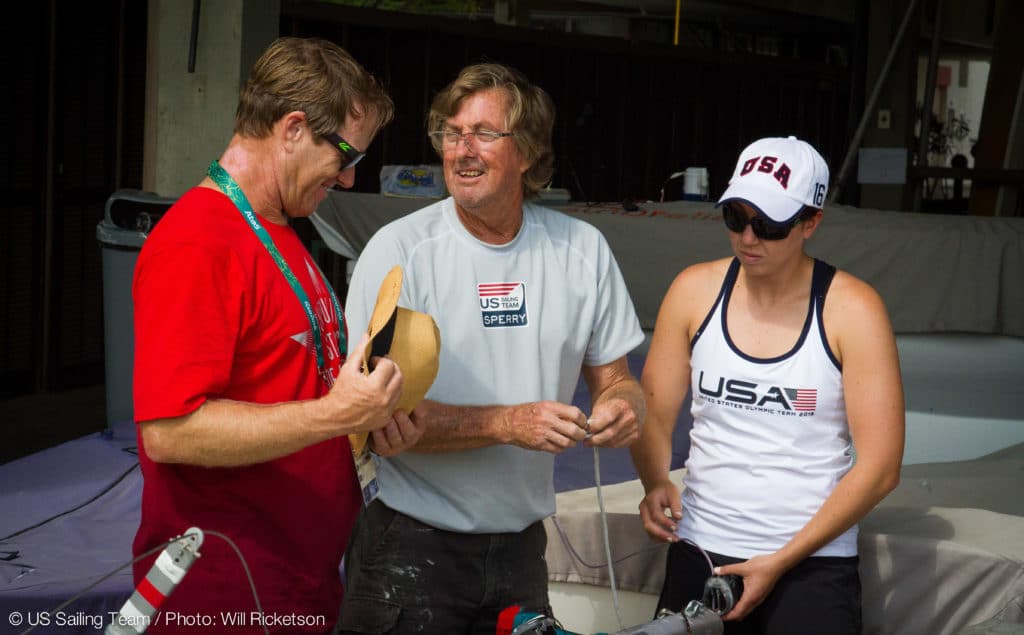
For sailors who haven’t guaranteed the gold, the medal race is the pinnacle of their Olympic campaign, and requires a completely different strategy than the preliminary fleet racing. “At that point, it’s all points-driven,” says Mckee. “You look at if the sailor can medal at all based on points, if they can move up or down through the medals, or if they move down if they could lose the medal, and then form a plan from there.”
The strategy starts with a plan based on the other sailors in the medal race. “We figure out who they need to be looking out for, who they need to pass, and we also figure out who might be looking to pass them,” he says. “Then, you consider the other boats, which two boats might be looking only at each other, and not at you, and how that effects your strategy.”
Once that’s figured out, the sailor and coaching staff make a race plan. “ We make a general plan about where to start, what side of the course is favored, if they’ll be able to get around the fleet if they start on one particular side.” McKee points out that in the medal race, plans have to be flexible, and because of this the sailors have to fully understand and contribute to the plan. “They have to be able to make decisions out there, as things always change,” he says. “You can’t just tell them ‘do this and you’ll wind a medal.’ It doesn’t work like that in sailing.”
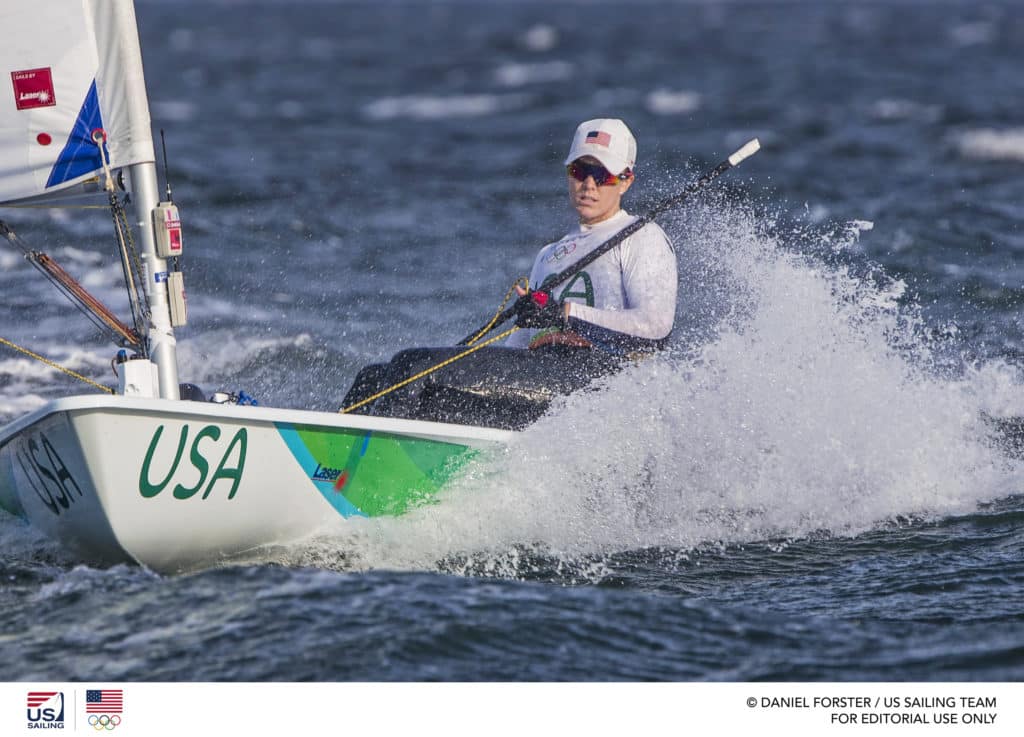
2016 Olympic Games Rio de Janeiro
There are four medal races scheduled for today— the Lasers and Laser Radials, rescheduled from yesterday, and today’s originally scheduled Finn and Nacra races. All will take place on the Pao de Acucar course. The Radials are the first, scheduled to begin at 1300, though the sea breeze generally hasn’t been filling until closer to 1430, so we will likely see a delay there. They’ll be followed by the Lasers, then the Finns, and finally the Nacras. If the weather pattern from this week is consistent, it’s unlikely we will see all of these races today, but if there’s anything we’ve learned about Rio since the regatta started last week, it’s that there is no such thing as consistent conditions here.
The 470s were scheduled for a lay day but after completing no races yesterday will race on the outside course today to complete their preliminary series before tomorrow’s medal race, and the skiffs will have their final day of preliminary racing before a scheduled layday tomorrow.
Live tracking of all races will be available at sailing.org. The medal races are broadcast, so check your local provider for a broadcast schedule.




